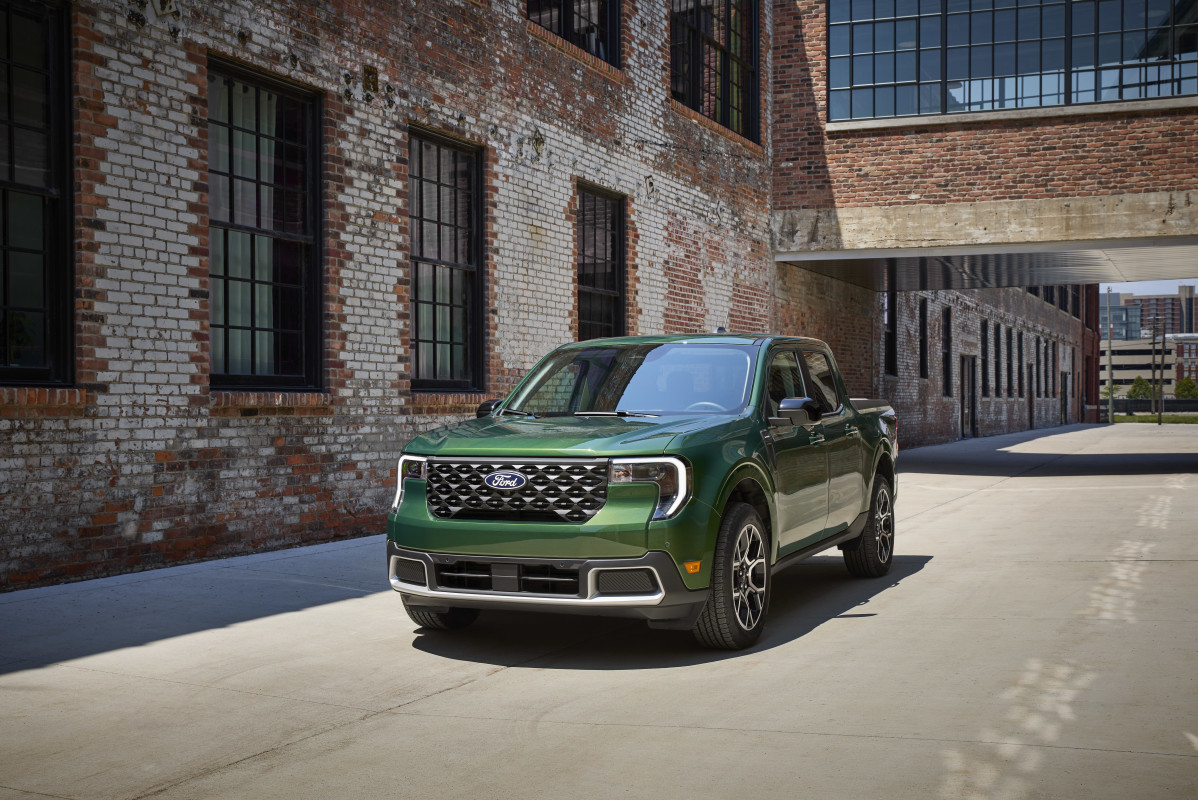Your favorite Ford may get a bit pricier.
Amid growing car industry sentiment centered on the impact of new, hefty trade tariffs, Dearborn-based automaker Ford is raising prices of its Mexican-made cars for its U.S. customers. According to a new report by Reuters, a notice sent to dealers showed that prices on popular models like the Mustang Mach-E electric SUV, Maverick pickup and Bronco Sport will receive a price bump by as much as $2,000.
A Ford spokesperson told the outlet that the price increases will affect cars built after May 2, which are expected to arrive at U.S. dealers by late June. They noted that the price hikes reflect “usual” mid-year pricing adjustments, along with “some tariffs we are facing,” adding that the company has “not passed on the full cost of tariffs to our customers.”
The price increases affect some of Ford’s more popular nameplates. According to data released by Ford, the three models experienced strong sales in 2024, as well as the first quarter of 2025. In Q1, Ford managed to move 21% more Mustang Mach-e EVs (11,607 in Q1 2025 v. 9,589 in Q1 2024) over the same time period last year and 5.7% more Bronco Sports (33,363 v. 31,565), though Maverick sales saw a slight 2.7% dip (38,015 v. 39,061).
Ford
View the 3 images of this gallery on the
original article
Ford’s tariff impact
Ford’s announcement to its dealers comes the same week as it told investors and Wall Street analysts the full scope of the impact of cross-border tariffs on the automaker.
The Administration stands firm on its 25% tariff on imported vehicles. However, President Trump recently softened his tariff policy regarding foreign auto parts, introduced a program that credits automakers for what is produced in the United States, and removed provisions that would make automakers pay double tariffs on raw materials.
Following the footsteps of its crosstown rival General Motors, Ford suspended its full-year guidance on May 5, as it expects to take a roughly $1.5 billion gross hit to its earnings from the tariffs, hoping to offset $1 billion from $2.5 billion in tariff costs through internal actions and other adjustments.
Preciously, Ford expected to take in earnings between $7 billion and $8.5 billion for the year, however, CEO Jim Farley warned that it is still too early to predict exactly how much the recently implemented tariffs will actually affect the global supply chain.
“It’s a pretty dynamic situation […] I think this is all really new for all of us,” Farley told analysts during its earnings call.
Related: Ford CEO Jim Farley Says This Policy Would Help the U.S. Auto Industry
However, the CEO also reiterated that the Ford’s domestic footprint gives it an edge over its Detroit rivals, noting that “this new environment in which automakers with the largest US footprint will have a big advantage.” Additionally, Farley noted on the earnings call that it “supports the administration’s goal to strengthen the US economy by growing American manufacturing,” as well as “a level playing field globally for domestic and foreign OEMs.”
“We also appreciate the ongoing cooperation we’ve had with the administration,” Farley said. “As America’s largest auto manufacturer, our engagement with Washington is helping US policymakers better understand how their proposed policy changes would impact our industry and of course, our communities.”
Final thoughts
In recent media appearances, CEO Jim Farley reiterated that Ford makes most of its U.S.-bound vehicles in the U.S., citing in an April 30 Fox Business appearance that “85%” of such are built here. During the earnings call on Monday, he added that Ford “assembled over 300,000 more vehicles in the US than our closest competitor,” including “100% of all our full-size trucks.”
However, he also noted that while other manufacturers build in the U.S., adapting to the tariffs means that they would have to “absorb higher costs, invest capital,” which “will take time,” adding that “It’s not as simple as just assembling more vehicles in the US.” “OEMs must also balance customer affordability, which means the ability to import parts tariff-free,” he said to analysts.
With this in mind and Farley’s idea of crediting automakers who export from U.S. factories, I do not expect Ford to be the only automaker to increase prices for its U.S. customers in light of recent tariffs, unless more comprehensive and fruitful dialogue between the current Administration and automakers happen.
Related: Audi may Build Future EVs in the United States Due to Tariffs